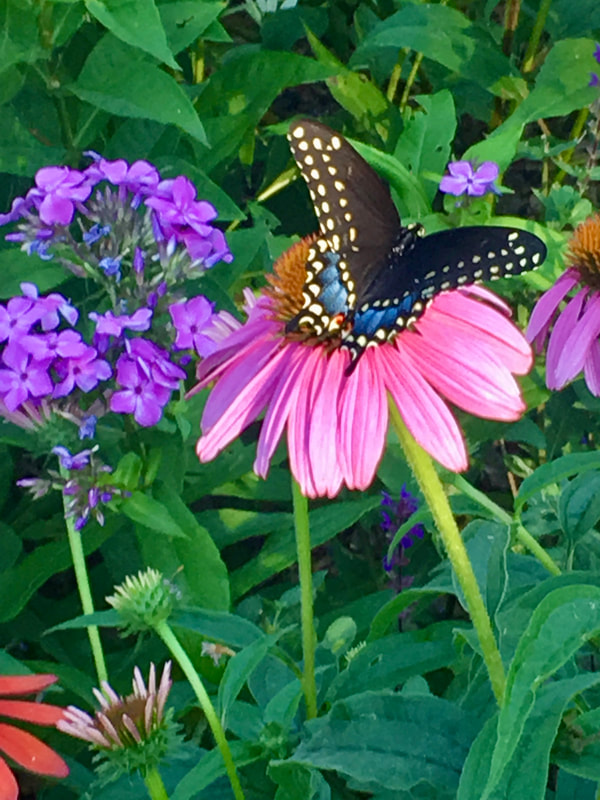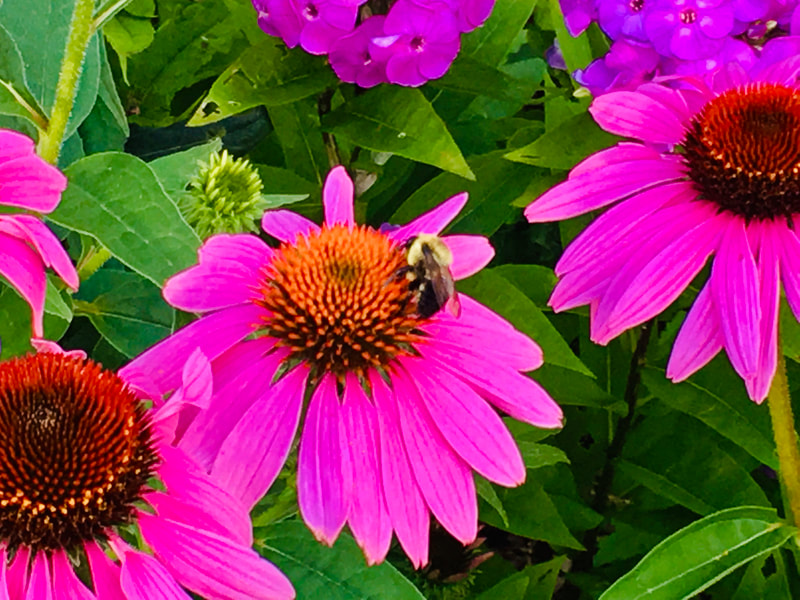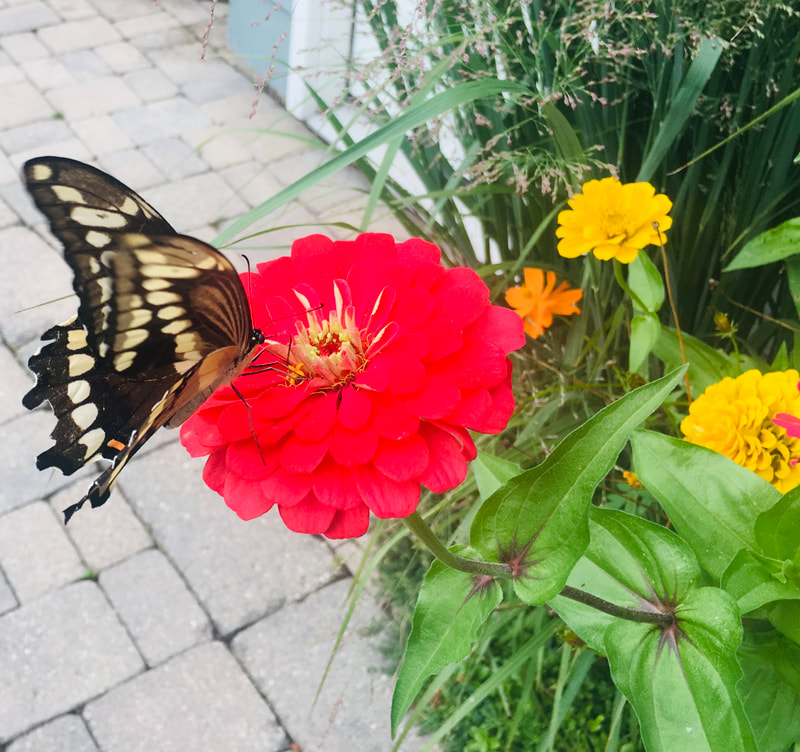POLLINATOR GARDENS & WILDLIFE HABITATS
|
One of the most important ways you can help pollinators is by planting your garden with plants that provide pollen and nectar. Pollinators are vitally important to our food system. They support and maintain pollinators such as beneficial insects, butterflies, and birds by supplying food in the form of pollen and nectar that will ensure that these important animals stay in the area to keep pollinating our crops for continued fruit and vegetable production.
Diversity is the key to a good pollinator garden. Because each pollinator has its own techniques for sourcing nectar and pollen, flowers should be as varied as the pollinators that visit them. Native plants share a long evolutionary history with their pollinators, so including a wide variety of natives will make your garden a favorite destination for pollinators. Native plants contain the right nutrients and provide the right shelter for pollinators. It is important to have several different plants in bloom from early spring through late fall. Some pollinators emerge in early spring, while others don't appear until mid-summer, but they all need pollen and nectar while they are active and rearing their young. To maximize the effectiveness of your pollinator habitat, it is important to have a variety of plants in bloom throughout the season. Overlapping bloom times will ensure there is always something in your garden to provide nutrition for pollinators. Green Edens uses environmentally friendly gardening practices and, whenever possible, native plant material. This encourages the repopulation of local insects, birds and wildlife, which brings the natural balance back to our environment. Once your garden design and installation is complete, Green Edens can help you register your residence with the National Wildlife Federation as a certified habitat for local birds, butterflies, and other wildlife. The National Wildlife Federation is America’s largest conservation organization. They are dedicated to protecting wildlife and habitat and inspiring the future generation of conservationists. |
Learn more about:
|




